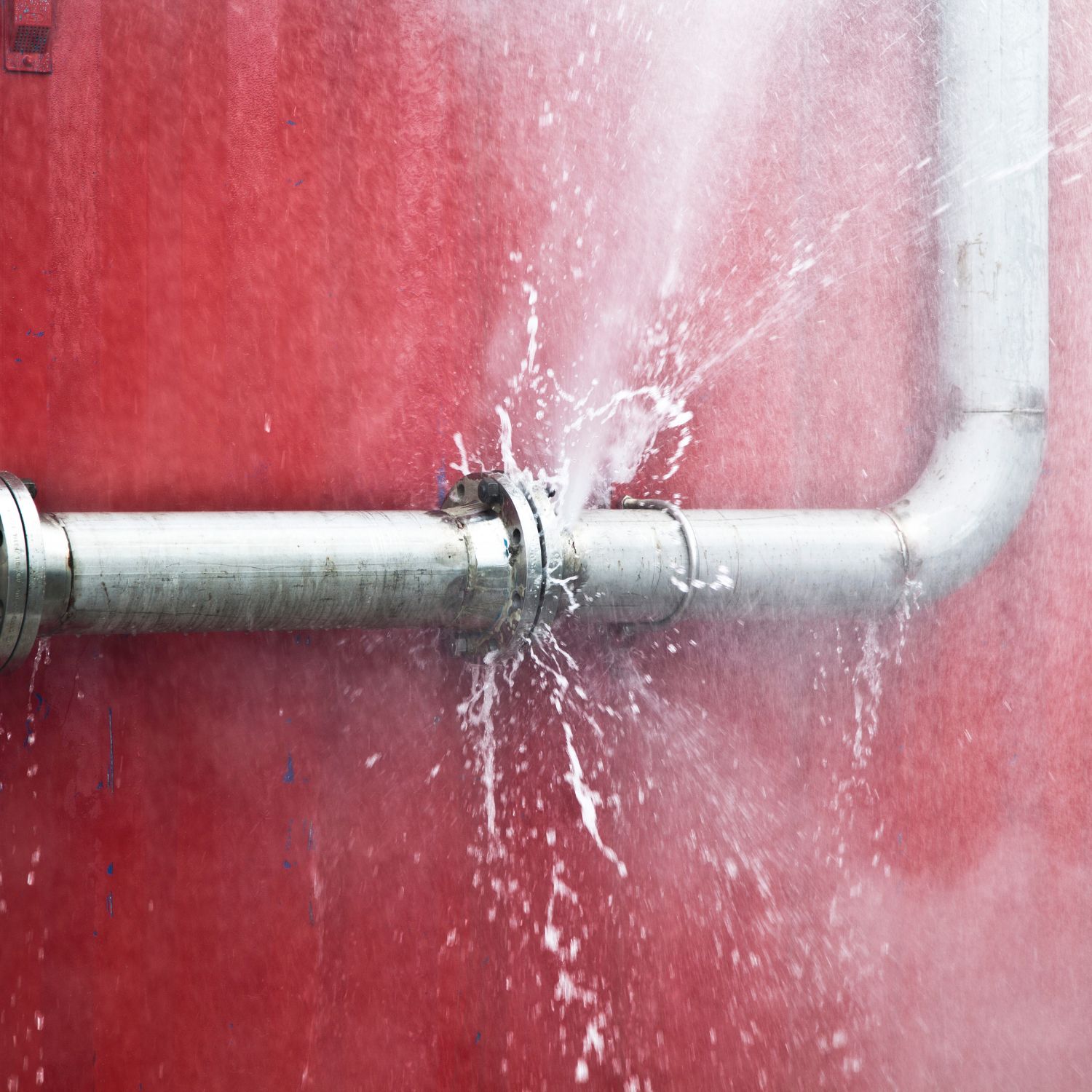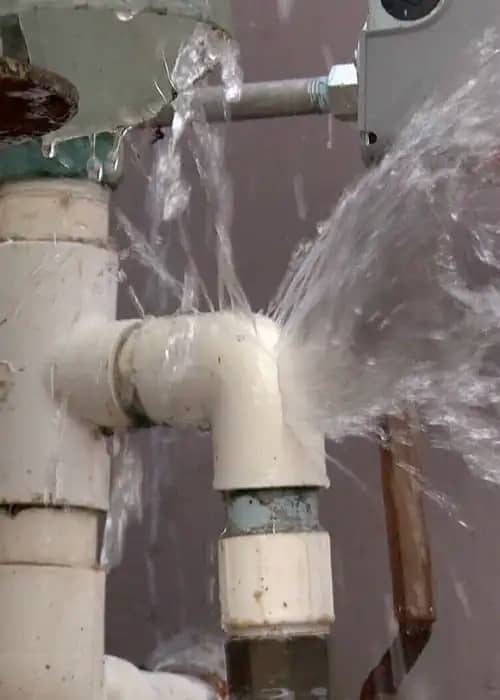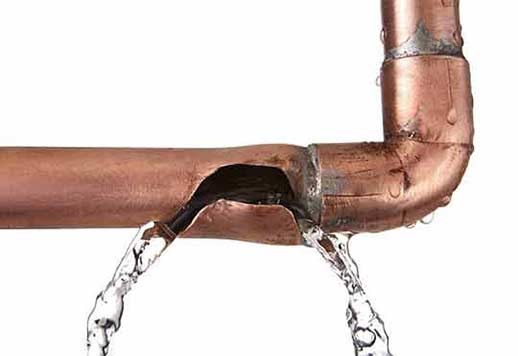Understanding the Causes of a Burst Pipe and How to Prevent It
Understanding the Causes of a Burst Pipe and How to Prevent It
Blog Article
Preventing Burst Piping: Essential Tips to Protect Your Plumbing
Preventing burst pipelines is an important issue for house owners, particularly during chillier months when the threat of freezing is increased. Implementing calculated procedures such as proper insulation, routine inspections, and preserving regular interior temperatures can dramatically minimize the likelihood of pipeline failure.
Understand Pipe Vulnerabilities
Recognizing pipe susceptabilities is crucial for efficient pipes maintenance and protecting against costly damages. Several factors add to the susceptibility of pipelines to ruptureds, including product structure, age, and ecological problems. Older pipelines, specifically those made from galvanized steel or polybutylene, usually degrade with time, bring about increased danger of ruptures and leakages.
Temperature level changes can likewise substantially influence pipe integrity. In chillier climates, water entraped in pipelines can freeze, applying and increasing pressure on the pipe walls, which may eventually result in a ruptured. High water pressure can stress pipelines, especially at bends and joints, heightening the possibility of failure.

Insulate Water Lines Appropriately
Correct insulation of pipelines is essential for stopping cold and succeeding ruptureds during winter (burst pipe). Shielding your pipes system properly safeguards versus temperature level drops that can lead to expensive damage. Begin by recognizing vulnerable areas where pipes are subjected to outside temperatures, such as basements, attics, and exterior walls
Use foam pipe insulation sleeves or cover insulation tape around these locations to offer a protective barrier. Ensure that all sections of the pipes, especially those with restricted warmth exposure, obtain ample insulation. Pay special attention to joints and installations, as these are a lot more vulnerable to freezing.
When shielding, it's essential to choose materials that fulfill regional structure codes and are appropriate for the certain setting. Fiberglass insulation is often advised for its thermal resistance buildings. Furthermore, take into consideration utilizing heat cables or tape in extreme conditions, which can be connected in to offer supplemental warmth
Routinely examine insulated pipelines for any signs of wear or damage, as endangered insulation can diminish its performance. By taking these positive procedures, you substantially minimize the danger of pipe ruptureds, ensuring a reliable pipes system throughout the cold weather.
Maintain Consistent Temperature Level
A stable indoor temperature level is vital for preventing burst pipes throughout the icy months. When temperatures decline, water within pipelines can ice up, increasing and creating pressure that might inevitably trigger the pipelines to burst. To minimize this risk, property owners ought to preserve a consistent temperature level throughout their home, preferably no less than 55 ° F(13 ° C)Making use of a programmable thermostat can assist take care of interior temperatures efficiently, making sure that spaces with pipes remain cozy also when your house is vacant. Pay special interest to locations that are extra prone to cold, such as attics, cellars, and garages. Maintaining cupboard doors open under sinks can additionally permit warmer air from the home to flow around pipes.
On top of that, it is prudent to enable taps to trickle slightly throughout extreme cold snaps. This small circulation of water can protect against cold by click for source easing stress within the pipelines. Throughout especially extreme weather occasions, think about momentarily suspending any nighttime setbacks on your thermostat to maintain a stable cozy environment. By implementing these methods, property owners can significantly decrease the danger of pipe ruptureds and secure their pipes systems versus the severe winter months aspects.
Routinely Examine Pipes
Regular evaluations of plumbing systems are essential for preventing ruptured pipes and maintaining total home stability. Regular checks permit house owners to identify prospective problems before they intensify right into costly repairs or significant water damage. Throughout these assessments, it is vital to check out noticeable pipes for indicators of corrosion, leakages, or use. Pay special focus to locations susceptible to cold, such as cellars, attics, and exterior wall surfaces.
Additionally, checking joints and connections is essential, as these factors are frequently susceptible to leakages. Property owners should additionally evaluate water pressure levels, as excessive pressure can strain the plumbing system and enhance the danger of pipe ruptureds.
Take into consideration scheduling specialist why not try this out plumbing examinations at least when a year, especially before winter months, to ensure your system is prepared for chillier temperatures. By being positive in your technique, you can protect your home versus the pricey and disruptive repercussions of ruptured pipes.
Know Emergency Situation Procedures
Understanding emergency procedures is crucial for every home owner, particularly after conducting regular pipes assessments. Being planned for a plumbing emergency situation can dramatically reduce damage and save prices. Situate your major water shut-off shutoff; it is normally located near the water meter or where the main line enters your home. Familiarize on your own with its operation, as shutting off the water supply promptly can prevent substantial flooding.
Following, keep vital devices useful. A plumbing emergency situation kit need to consist of a wrench, plunger, and towels, as well as a flashlight and a container for tiny leakages. Additionally, take into consideration having the call information for a trusted plumber easily available, must the circumstance escalate beyond your control.
If you detect a leakage or ruptured pipe, immediately shut off the water supply and notify your plumber. Furthermore, record the damage with photographs for insurance functions. burst pipe. Know the indications of possible pipes issues, such as unusual water pressure variations or damp spots on walls
Ultimately, proactive expertise and speedy action are essential in taking care of pipes emergency situations, guaranteeing your home stays protected and reducing potential damages.

Verdict
To conclude, stopping burst pipes requires a diverse technique that includes understanding pipe susceptabilities, appropriate insulation, keeping constant interior temperature levels, normal examinations, and knowledge of emergency situation procedures. By carrying out these crucial methods, the danger of plumbing failures can be dramatically decreased, therefore making certain the durability and performance of the plumbing system. Positive steps not just safeguard against prospective damage yet also contribute to overall water conservation and the defense of property.
In cooler climates, water entraped in pipelines can ice up, expanding and exerting stress on the pipe wall surfaces, which may ultimately lead to a burst. When temperatures decline, water within pipes can freeze, developing and broadening stress that might inevitably create the pipelines to ruptured. By executing these approaches, property owners can considerably minimize the risk of pipe bursts and safeguard their pipes systems versus the rough winter months see elements.

Report this page